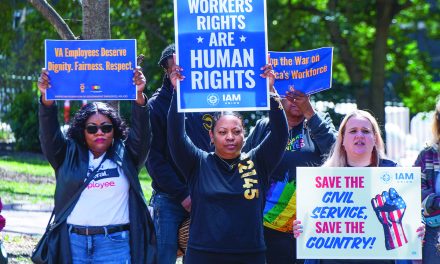A northern California strawberry grower, Cedar Point Nursery, and a few other California-based farm businesses, have taken a labor dispute over property rights all the way to the Supreme Court. The case, which challenges a 45-year-old California law that authorizes union organizers to access farm property for 120-days a year, three hours a day, during non-work periods to meet with workers, is under attack by farm owners who are calling the law unconstitutional.
Should the Court strike down the California union access law, it could have major implications for health and safety inspections, home visits by social workers, and anti-discrimination rules nationwide.
In its argument, Cedar Point claims the Takings Clause of the Fifth Amendment of the U.S. Constitution says, “private property [shall not] be taken for public use, without just compensation.” That argument is typically applied to cases of eminent domain, but the farms want the Supreme Court Justices to use a broader view, one that gives them more power to push back against state regulations.
Harvard Law Professor, and labor law expert Nikolas Bowie, told ABC News “I think this could be one of the most important cases of the term by far. What the businesses are arguing here is they have a constitutional right to treat some people on their property differently from others.”
The businesses argue they have the right to exclude whomever they want. Cedar Point Nursery’s Mike Fahner claims that in 2015, United Farm Workers “ambushed” his property, when they arrived without notice at the farm.
United Farm Workers general counsel Mario Martinez says Fahner’s account is “absolutely false.”
The California Agricultural Labor Relations Board investigated the events at Cedar Point and concluded the UFW had not violated the law and dismissed the grower’s complaint. After that, Cedar Point went to court, appealing all the way to the Supreme Court.
According to the UFW, the case is a threat to their ability to protect vulnerable migrant workers. Typically, farmworkers in California are seasonal. They arrive in town in time for the local harvest, live in motels or nearby camps, then move on when the crop is picked. For the UFW, this means that organizers only have a limited time to gather signatures for a union election. Because of this, and other farm-specific conditions, California has instituted labor regulations which allow union organizers to meet with workers an hour before work, and at lunchtime on the grower’s property for limited periods during the year — 30 days four times a year.
The Growers contend the law is no longer necessary with social media apps and smart phones offering new ways for the UFW to reach the workforce.
Former President Trump sided with the growers, asking the Supreme Court to take up the case. However, President Biden informed the justices that the government was withdrawing the Trump administration’s brief.
“It is therefore the position of the United States, in line with this Court’s cases, that the California regulation — like the authorization of temporary entry by government officials for law enforcement, inspection, and similar purposes –does not constitute a per se taking” of private property.
“That position,” wrote acting Solicitor General Elizabeth Prelogar, “accords with the United States’ view — which the government has repeatedly articulated in this Court and lower courts” over the years.
Should the Supreme Court side with the growers, the decision could have consequences for other laws. Experts agree, a wrong decision and laws allowing safety and health inspectors to enter businesses to examine how meat is butchered, whether mines are safe, how toxic chemicals are stored, whether businesses are in compliance with fire codes, if nursing homes and hospitals are taking proper care with patients and so on could all be at risk. Many of the laws protecting the American public, not just farmworkers are in peril.
Justices began hearing arguments on March 22, a decision is expected by early summer. ■





